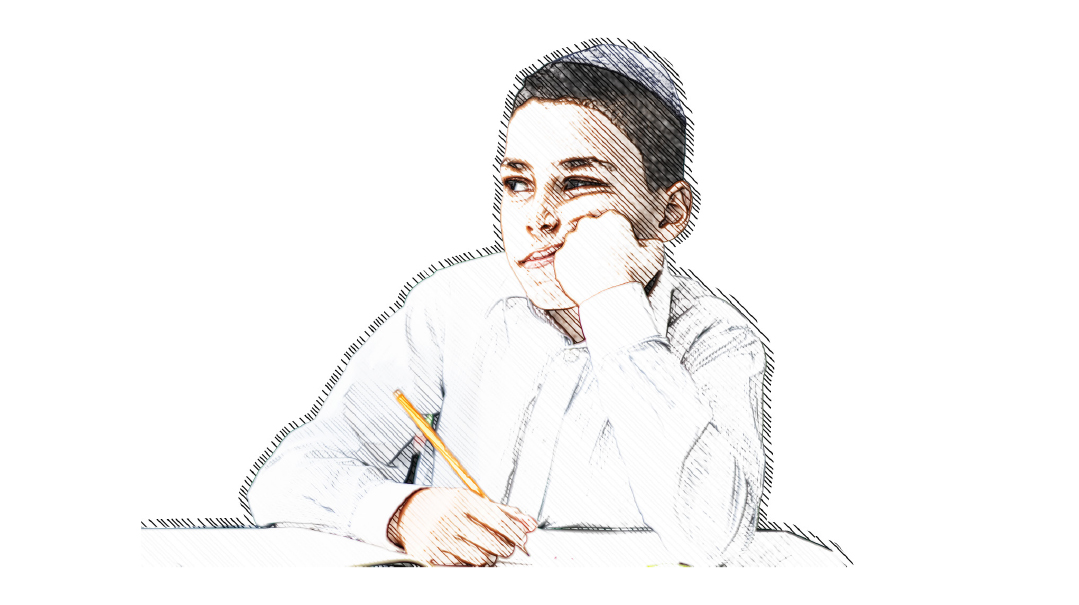Healing from Within: The Conversation Continues

Allison Josephs’s piece “Healing from Within” has drawn significant and impassioned feedback. The following is a sampling

Clip and Save // Chaya N.
I appreciated Allison Josephs’s piece and am grateful to her for matching Cori’s “Good Mother Messages” with Jewish sources. I try to be a discriminating reader and appreciate the value of chinuch tips that are based on Torah hashkafah.
I plan on clipping this list and referring to it to help keep me on track in my parenting.
So Many Other Elements // A Mother in the Trenches
While I appreciated the insights, I was perturbed by some of what I was reading.
The top reason in the author’s anecdotal evidence for the OTD phenomenon was that many of the disenfranchised youth and adults have left their Judaism due to the lack of an emotionally available mother.
While I appreciate that many factors — including this one — may impact our children and cause them to associate Judaism with pain and being unloved or misunderstood, I was uncomfortable with this specific relationship being pinpointed as a main factor in the abandonment of Judaism.
All of us, our children included, are impacted by so many factors. Friends, schools, even the outside world all impact us. Perhaps the author has not met my children. I have a number of children who are OTD and in our case I can say that there were myriad of reasons, and baruch Hashem we are very close, with them visiting and calling frequently. They are very loving to us and are on a journey. In fact, this week we all (adult children as well) built the succah together, with Jewish music blasting in the background.
I’m sure my parenting was not perfect. No one’s is. And yet we are close and loving despite the differences. I compliment my kids nonstop and I believe they are doing the best they can in their situation. And of course, I daven for them.
I applaud this author for doing the utmost to improve parent-child relationships and to help our image in the world. This is a noble and needed effort. At the same time, I wish she would realize that especially in these hard times, blaming and gaslighting can be very damaging.
Most of us parents and mothers are doing our best and are happy to grow and improve. But let us loudly and clearly proclaim that many factors are at play. I truly believe there are many spiritual, cosmic reasons for what is going on right now at the cusp of Mashiach’s arrival.
Let’s be mechazeik each other to be strong and loving, and we will all greet Mashiach together!
Attachment Trumps Trauma // Shalva Schneider, LCSW, Director, Jewessence
Allison Josephs’s article on insecure attachment due to childhood emotional neglect and its impact on some people’s choice to leave observance is a critical topic in today’s frum world.
As a clinical social worker who has been working with this demographic for over 20 years and as the director of Jewessence, a seminary-like program for young adult women who struggle with themselves and their Judaism, I have worked closely with hundreds of young people brought up in frum homes who have turned away from their Judaism.
I am constantly asked what causes someone to “leave the derech.” In my experience, there is no one universal answer. Risk factors can include trauma, abuse, highly sensitive personalities, insecure attachment and physical and emotional neglect. The only clear answer is that each person’s journey is unique.
Several years ago, I heard Dr. Bessel Van der Kolk, a world-renowned expert on trauma, speak at Hebrew University. He shared three simple words that changed my life and my perspective: “Attachment trumps trauma.”
You can have two people who experience similar traumas; one will be able to process and move on, while the other remains stuck. The difference between them is that Person A has a healthy, secure attachment with someone in their life and Person B does not. He continued, “even if someone did not have a secure attachment at the time of the trauma, they can develop it later on in life and use that to heal from past trauma.”
It struck me that Dr. Van der Kolk put the words and the research to what we at Jewessence instinctively knew and were already doing.
We are helping our young women create healthy, secure attachments. As I tell my staff all the time: “Our job is to show up for the girls day after day, after day, after day, after day. We show up for them even when sometimes they are not able to show up for themselves. We show up without judgment and we accept them fully as they are. These are the building blocks of secure attachments. This eventually enables them to bring down their walls and to trust again. They see that people believe in them and eventually they can start believing in themselves. This all enables them to create healthier, more authentic attachments with themselves, with Hashem, and with the Jewish community.”
While I don’t think there is a universal cause for someone to turn away from Torah observance, I do believe that the universal solution is through healthy attachments. This is something that we all can do when we show up for each other in an authentic, nonjudgmental way without expectations.
Don’t Forget the Schools // R.O., Brooklyn, NY
Thank you, Allison Josephs, for sharing your story and writing about such an important topic in our world today, and thank you Mishpacha for publishing it.
I have no doubt about the validity of childhood emotional neglect being the cause of many people who are not frum today.
There was one point, however, that seemed to be missing from the article, and which I strongly feel is important to point out: Those involved in the chinuch of our boys and girls must remember the responsibility that they too hold, since emotional neglect can unfortunately often be attributed to schools and yeshivos as well.
Allison Josephs lists “Good Mother Messages” that include “I’m glad you’re here,” “I respect you,” “I am here for you,” and “I delight in you” among others. Too many of our children, both boys and girls, do not hear or feel these types of messages from their schools, especially those students who are not successful academically, fail when they are tested on Gemara or reading Rashi or mefarshim, come late to davening, or other areas in which they are seen as failing or just not quite making it in the exacting parameters of our system.
Children who feel that by not excelling in their studies they are a disappointment, definitely do not hear the message that anyone is “glad they are students in their school,” and that feeling quite quickly impacts their perception. Soon enough they feel they don’t have a place where they are respected, accepted, and loved within Yiddishkeit, since in a child’s world, their Jewish school, rebbeim and teachers are one of their main connections to Judaism.
Not every child can excel or even succeed academically, many children feel anxious and unsure about doing mitzvos to the exact degree and detail they’re taught, yet it does not mean they need a special or different school. It does mean, however, that they need to feel emotionally loved, respected, accepted by, and safe with those that are with them during the day as their principals, rebbeim, teachers, and role models.
Just as we are reminding parents of this crucial responsibility, we must remind those in a chinuch position not to perpetuate emotional neglect as well. This is especially important because for many students, more hours are spent in school than at home, and because rebbeim and limudei kodesh teachers have a direct connection to Yiddishkeit in the eyes of their students.
I daven for the day when we see emotional healing and ultimately a reconnection to Yiddishkeit in all those who are in pain or struggling or going through the journey of finding where their neshamos belong.
Hang Them in the Teachers’ Rooms // Malkey Wallerstein, LMSW
As a teacher with over 30 years’ experience, and as a practicing therapist, I can attest that the “Good Mother Messages” list needs to be posted in teachers’ rooms of our yeshivos and Bais Yaakovs.
Our students spend much of their waking hours during key developmental years in school. If they are leaving our walls less than inspired it might not be due to our curriculums, but because we have not met their emotional needs.
No One-Size-Fits-All // Neil Harris
I would like to thank Mishpacha for publishing Allison Josephs’s perspective on the issue of Jews going OTD. Her dedication to promoting a healthy image of the Orthodox lifestyle both to non-frum Jewish and non-Jews has made a massive difference over years in both the media and in pop culture. I am equally inspired by Mrs. Josephs’s sensitive approach to the many Yidden attracted to Project Makom and their approach.
I think it’s wonderful that Project Makom offers its members help in coming to terms with childhood emotional neglect. However, there are many reasons that people leave the frum world other than emotional neglect.
I am not in the field of kiruv or chinuch, but even if I didn’t know people who are OTD, a quick online search will show that people leave their frum lifestyles or lessen their observance for multiple reasons. Intellectual reasons, lack of belief in Hashem and/or rabbinic authority, conflicts with science, philosophical differences, lack of feeling any spirituality in daily observance… the list seems to go on and on.
I think that it’s important to keep this in mind. While Mrs. Josephs’s direct experience and observations have brought emotional neglect to the surface as a factor, there isn’t a one-size-fits-all solution to this issue.
Unrealistic Expectation // Dina Friedman
I was saddened that you chose to print the Perspective piece blaming parents and failed attachment when children go off the derech.
This entire attachment theory is way overused. It is touted today as the cause of all ills when people have a difficult time explaining their suffering and dysfunctions.
A parent losing a child to this OTD phenomenon is suffering. They are already living with an overload of guilt. They don’t need to deal with more public blame.
Unless a parent is seriously abusive or totally emotionally disconnected, all parents try their very best to meet their children’s needs amid the million demands life places on them just to survive. Every parent deserves enormous applause for the efforts they put in to meet their children’s needs.
And they don’t get it because today, all ills of a child are blamed on the parent. Even serious mental disorders, such as personality disorders, are blamed on failed attachment when abuse can’t be identified.
Here are some reasons why a child might feel their emotional needs weren’t met even when a parent tried their best:
- They have an extra measure of sensitivity that neither the child nor parent is aware of as the child is growing up. This is neither the parent’s fault nor the child’s fault but due to temperament.
- Some children are incapable of receiving and absorbing the attachment being offered them because of their neural wiring (usually the root cause of personality disorders). We can know this to be true when there are many other siblings in the family whose emotional needs and attachment are in order — children of the same parents being blamed for the kid who went OTD.
- Finally, young children have no way to advocate for themselves and ask for their emotional needs as they are growing up. This then often gets acted out as misbehavior. It is very difficult for a parent (especially a hassled one — which most parents are today) to differentiate if this is a call for more emotional nurturing or a call for discipline and boundaries. Unfortunately, a child’s true emotional needs might be overlooked and treated as a discipline issue rather than a call for soothing.
I daresay that we all need to learn how to re-parent parts inside us that were overlooked during our own childhoods. It is totally unrealistic to expect a parent to catch every distress signal appropriately when it happens.
A child who has gone OTD deserves compassion and understanding and healing. Blaming parents (unless there was real abuse) serves no one. Let’s stop burdening parents with unrealistic expectations and toxic fears.
Every parent should learn how to meet their children’s needs as best they can in ways that are doable and sustainable — and at the same time accept that the results will never be perfect and that is all you can do. How the child receives your best efforts is ultimately their journey in life and not a parent’s fault.
But My Other Kids Are Perfect! // Meir Wikler, D.S.W., Brooklyn, NY
Hats off to Alison Josephs for her excellent elucidation of one of the major causes of the complex, multifaceted tragedy of so many OTD young people today.
Allow me to respond to the following objection to her thesis which will surely be raised. “How can my parenting have anything to do with my child going OTD when all of my other children are solid shomrei Torah u’mitzvos?”
The answer, very simply, is that with the exception of identical twins, no two children have the same parents. Gender and birth-order differences cause parents to relate differently to each child. To cite just one common example, most parents are more lenient with their younger children than they were with their older children.
While parents love all their children equally, they rarely treat them equally.
Too Much on Our Thin Shoulders // Name Withheld
Dear Allison Josephs, and Everyone Else Who Has Ever Written Parenting Articles in Frum Magazines (and there are many of you),
First, thank you for your tremendous dedication to Klal Yisrael and the beautiful kiddush Hashem and chesed in which you are immersed. I am awed.
Second, thank you for your thoughtful contribution to the growing library of sensitive, psychologically tuned-in parenting advice. You write movingly and convincingly.
But can I tell you how I felt after reading your article? I felt inadequate, inept, and flawed. Most of all, I felt exhausted. Exhausted to encounter yet another article informing parents who are loving, well-intentioned, and provide for their children on all levels that the future wholeness of their children depends entirely on a rarefied level of emotional expertise that is beyond their capacity to achieve if they weren’t blessed with parents who themselves were fortunate enough to have it.
My husband and I are parents of a large family. We both work in chinuch and are dedicated to meeting the needs of each of our children in every area. We are growing people who work hard on our middos and regularly discuss what we can do for our children and how we can be better parents.
And yet.
We are children of flawed parents. Our own parents were second-generation Holocaust survivors, as I imagine were the parents of many of our parenting cohort, and they were not perfect parents. Neither are we. We each bring with us unideal patterns of behavior and significant character flaws. Each of us is conscious of large areas of parenting in which we fall short. We feel very bad about this.
When I read an article like yours, I become filled with despair. Because once again, we are being told that successful parenting is the province of those who are so beautifully emotionally evolved that they can successfully convey the ten points on your list.
We already read the weekly columns that describe proper ways to disagree, how to perfect your listening, and how to straddle the fine line between validating your child’s difficult emotions (“no emotion is off-limits”) and ensuring they understand bad behavior has consequences. I took a yearlong parenting class at great financial and time expense, and read and listen to lots of parenting advice.
And I wonder: Just how perfect do we have to be? Are these expectations reasonable? Are they fair? I am grateful to all those who advise. I am so happy they are here to elevate our parenting avodah. I am happy we have moved beyond the parenting of previous generations.
But there are consequences to being so evolved and enlightened: I am constantly feeling guilty. I have learned to stifle my own voice. I have had shalom bayis challenges that were brought about only because these articles highlighted my spouse’s failings. The worry that filled me, and the sense of powerlessness I felt to change my husband caused me to withdraw from him or lash out in anger.
In short, one major effect of all this advice: I no longer believe that I am enough for my children.
Is this right? Is it possible, I dare to ask, that I would be better off without all this? Is the expectation now that parents are to achieve such an exquisite level of emotional and psychological maturity that anything short of it increases the chances that their children will be deeply, almost irreparably wounded? Does Hashem give so many young and dumb couples children because He believes that they have already arrived at this exalted point? Really?
And let’s speak for a moment about the children themselves. When they struggle, is it always because of a deep parenting flaw? Is it never because of their own challenging natures, difficult experiences, or simply poor choices? Or some constellation of the three?
Are parents to blame for absolutely everything? How can any of us flawed works-in-progress ever parent with confidence when this responsibility is placed before us? It’s hard for me to believe that Hashem didn’t intend for parents to be people who struggle, like all people, and that sometimes, their children, who are people too, will struggle as well.
Perhaps you will say that I am triggered by this article because its points are true for me, and I have been failed in the areas discussed, or have failed my children that way. Perhaps you would be right. I have the humility to understand that the negios that drive me to push away some portion of the blame for my children’s challenges (and they have them) may be very powerful indeed. After all, who wants to feel that they are failing mightily at their most important avodah?
But is there another possibility? Is it possible that we placing too much on the thin shoulders of young parents, who are, after all, people trying their best to raise families the way they were taught to, amid the pressures of navigating multiple relationships, earning a living, working on ourselves, and living in the greater society? Is it possible that maybe, just maybe, we should give parents a break?
Editor’s Note: Last year, Jew in the City rebranded Project Makom as “Makom.” It now has three branches: Keter is its original media arm that works to restore the Keter Shem Tov of the frum community, Makom helps disenfranchised frum Jews find their place in the frum world, and Tikun partners with other organizations and leaders to repair systemic issues that cause chillul Hashem and prompt Jews to leave their communities.
(Originally featured in Mishpacha, Issue 932)
Oops! We could not locate your form.






